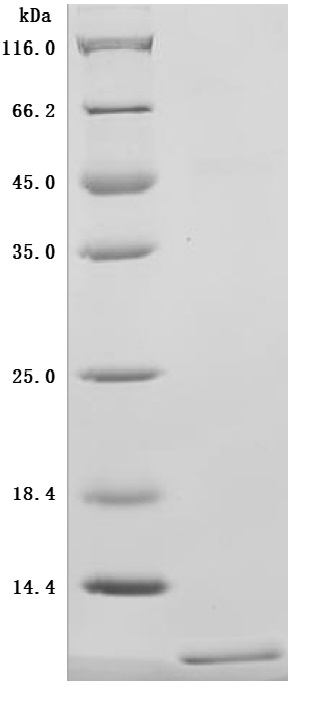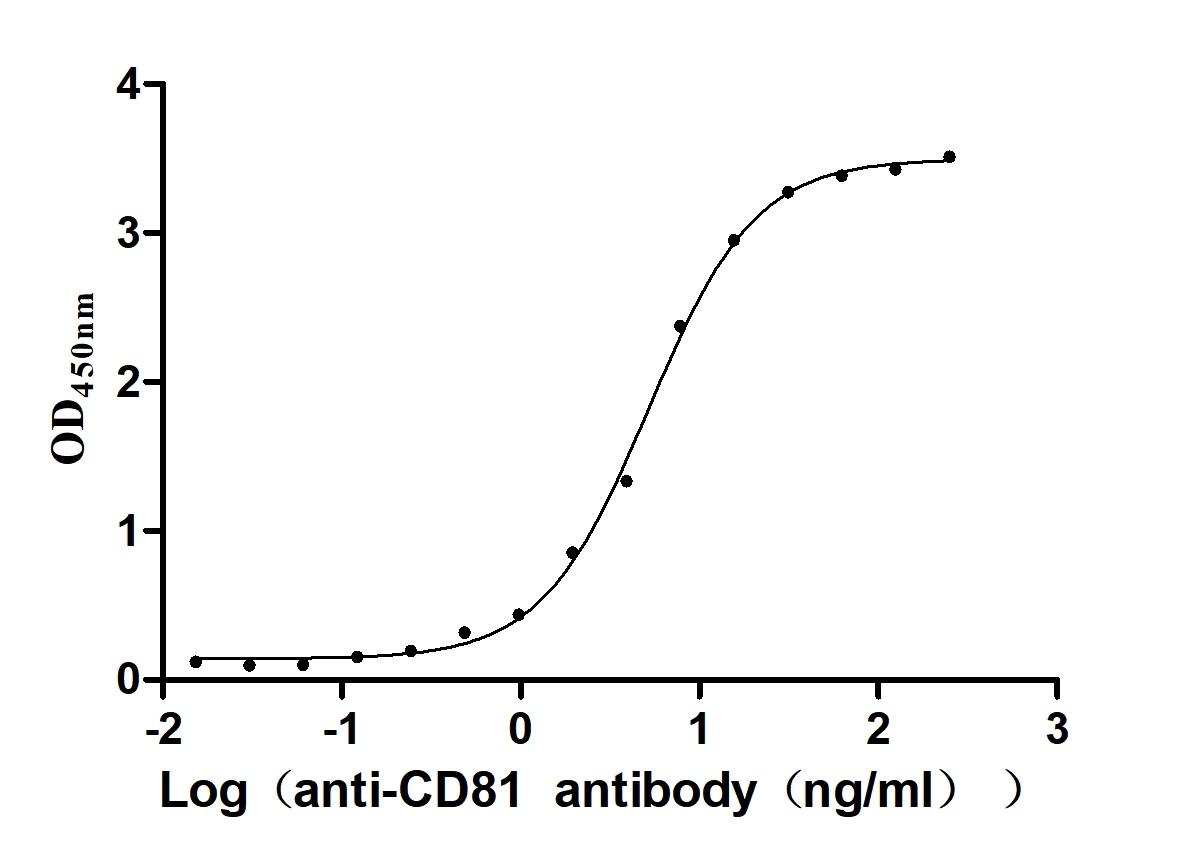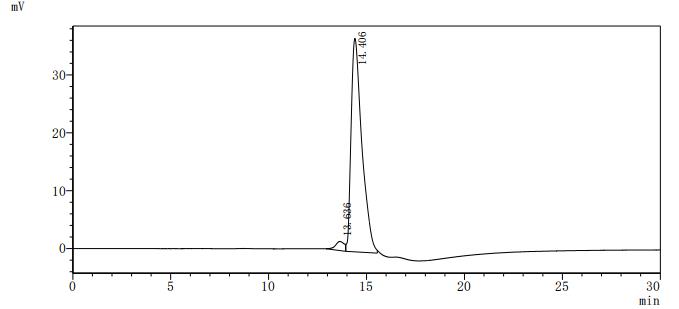The gene segment of the human CD81 protein encoding amino acids 113 to 201 is fused with a 10xHis-tag gene at its C-terminus and subsequently integrated into a plasmid vector. This recombinant vector is then introduced into mammalian cells, followed by the selection and cultivation of the transfected cells to induce protein expression. The recombinant human CD81 protein is harvested from the cell lysate, exhibiting a purity exceeding 95% as determined by SDS-PAGE. Its endotoxin level measures below 1.0 EU/μg through the LAL method. Its functionality is confirmed through assessment using a functional ELISA. When immobilized at a concentration of 2 μg/mL, the human CD81 protein is capable of binding with the anti-CD81 recombinant antibody (CSB-RA004960MA1HU), exhibiting an EC50 ranging from 4.166 to 5.578 ng/mL.
The human CD81 protein is a tetraspanin membrane protein expressed in various tissues except for red blood cells and platelets. It forms complexes with other tetraspanin proteins, integrins, co-receptors, MHCI or MHCII molecules, influencing the adhesion, morphology, activation, proliferation, and differentiation of B and T cells. CD81 is involved in critical cellular processes such as membrane organization, protein transport, cell fusion, and intercellular interactions. Within the immune system, CD81 regulates immunological synapses, receptor clustering, and signal transduction. It also mediates adaptive and innate immune suppression. CD81 serves as a portal for pathogens like hepatitis C virus and malaria parasites into liver cells. CD81 has also been shown to modulate cell migration and invasion, hence its relevance to cancer progression. It's expressed in various types of cancers including breast, lung, prostate, melanoma, brain, and lymphoma, and its overexpression or downregulation is correlated with prognosis. Thus, CD81 presents a rational target for receptor-targeted drugs. Developing CD81 as a drug target protein aids in screening clinical drugs targeting CD81 and conducting clinical trials.









